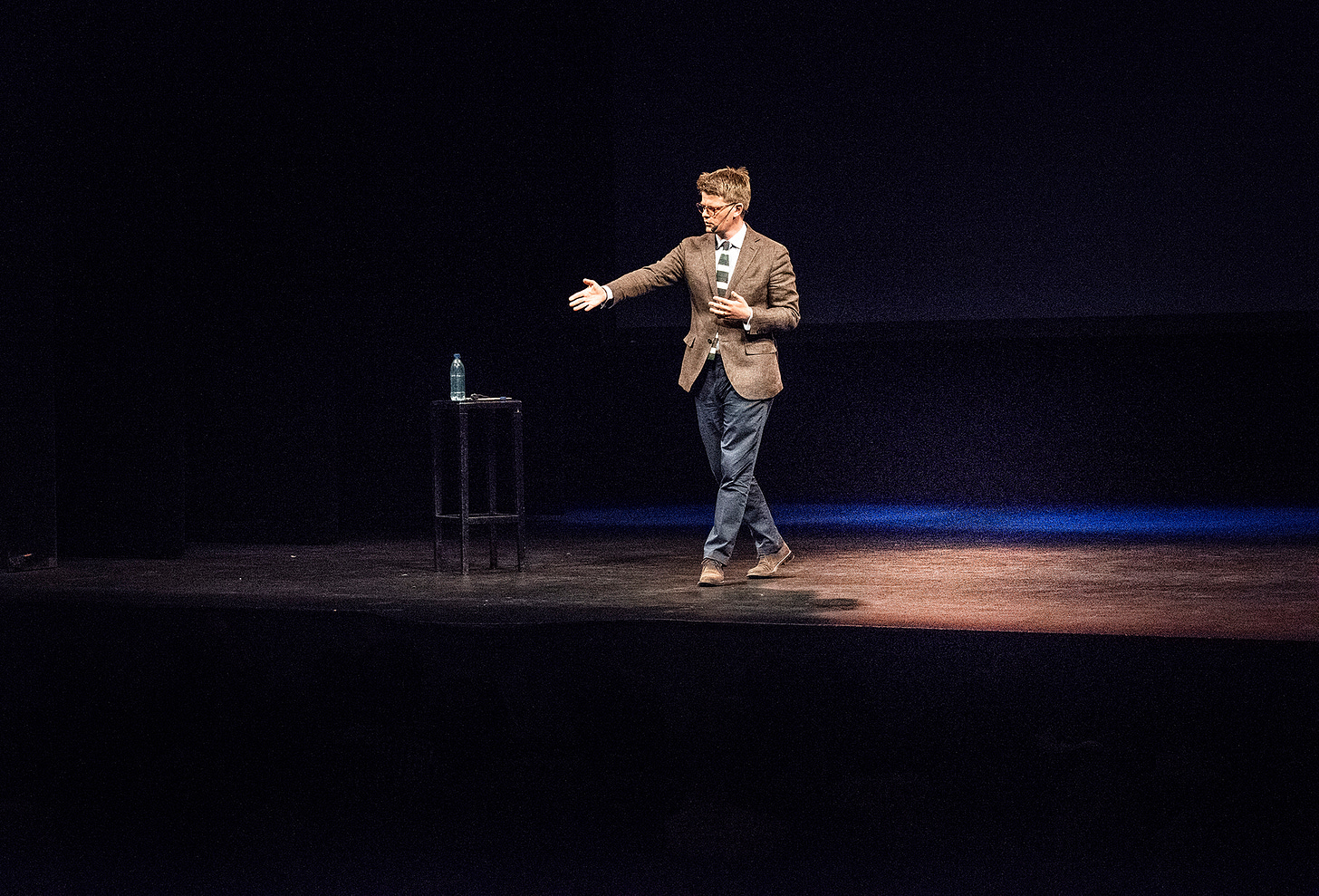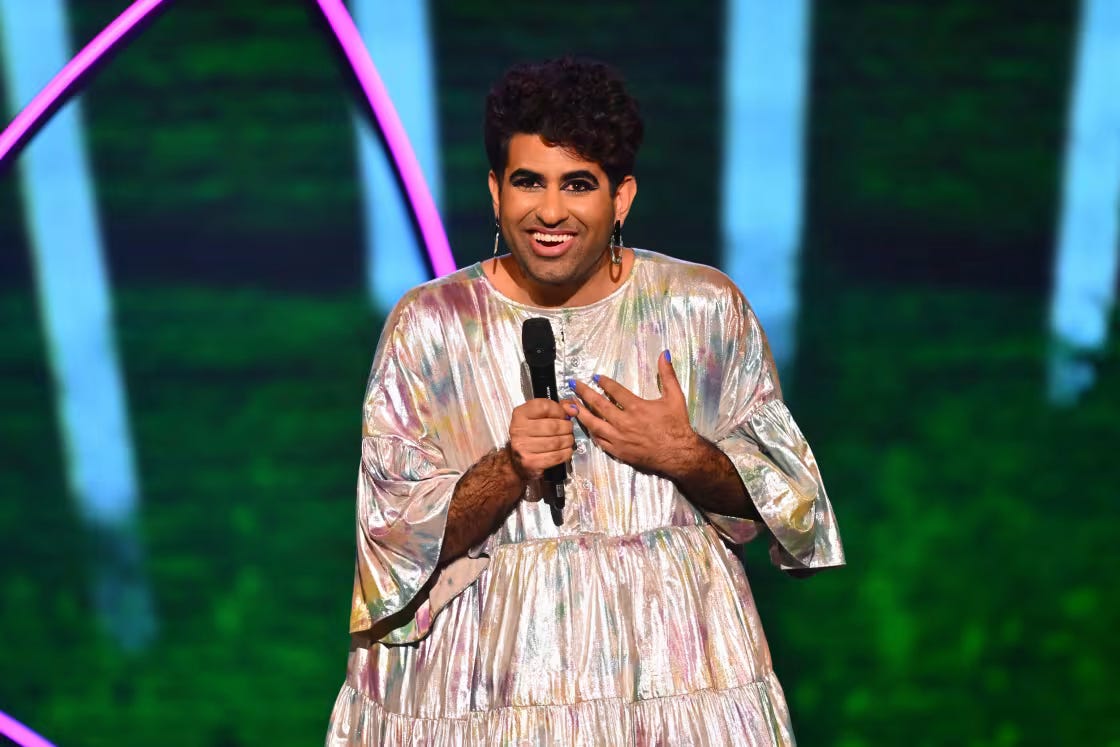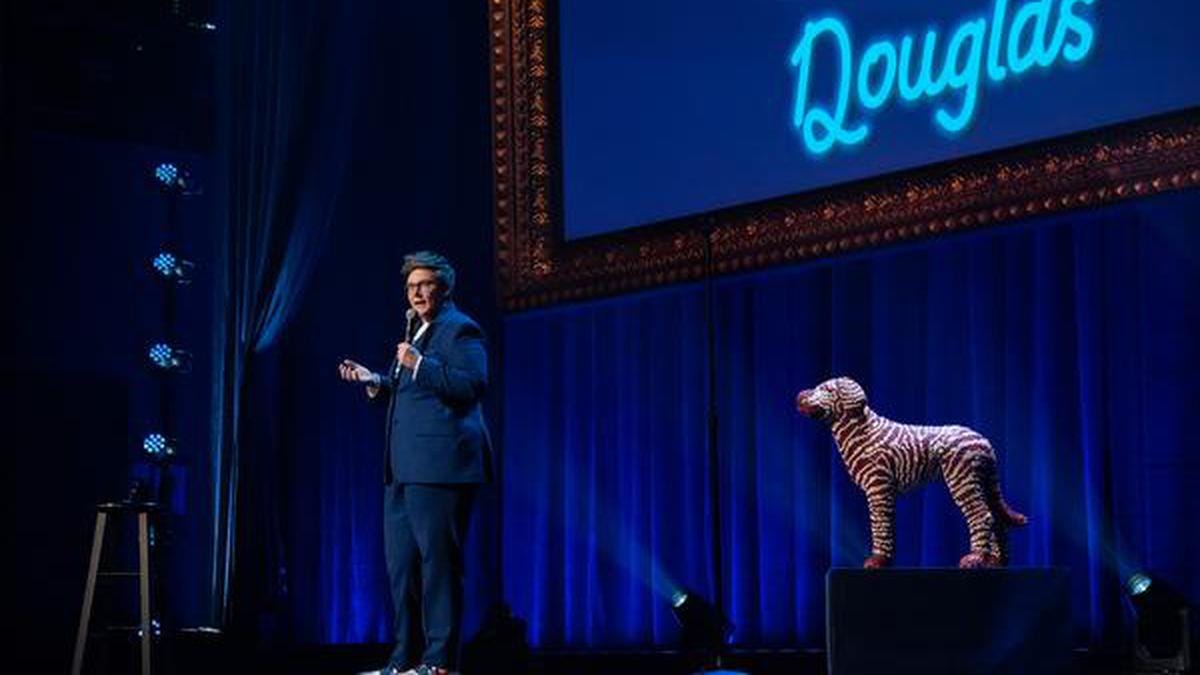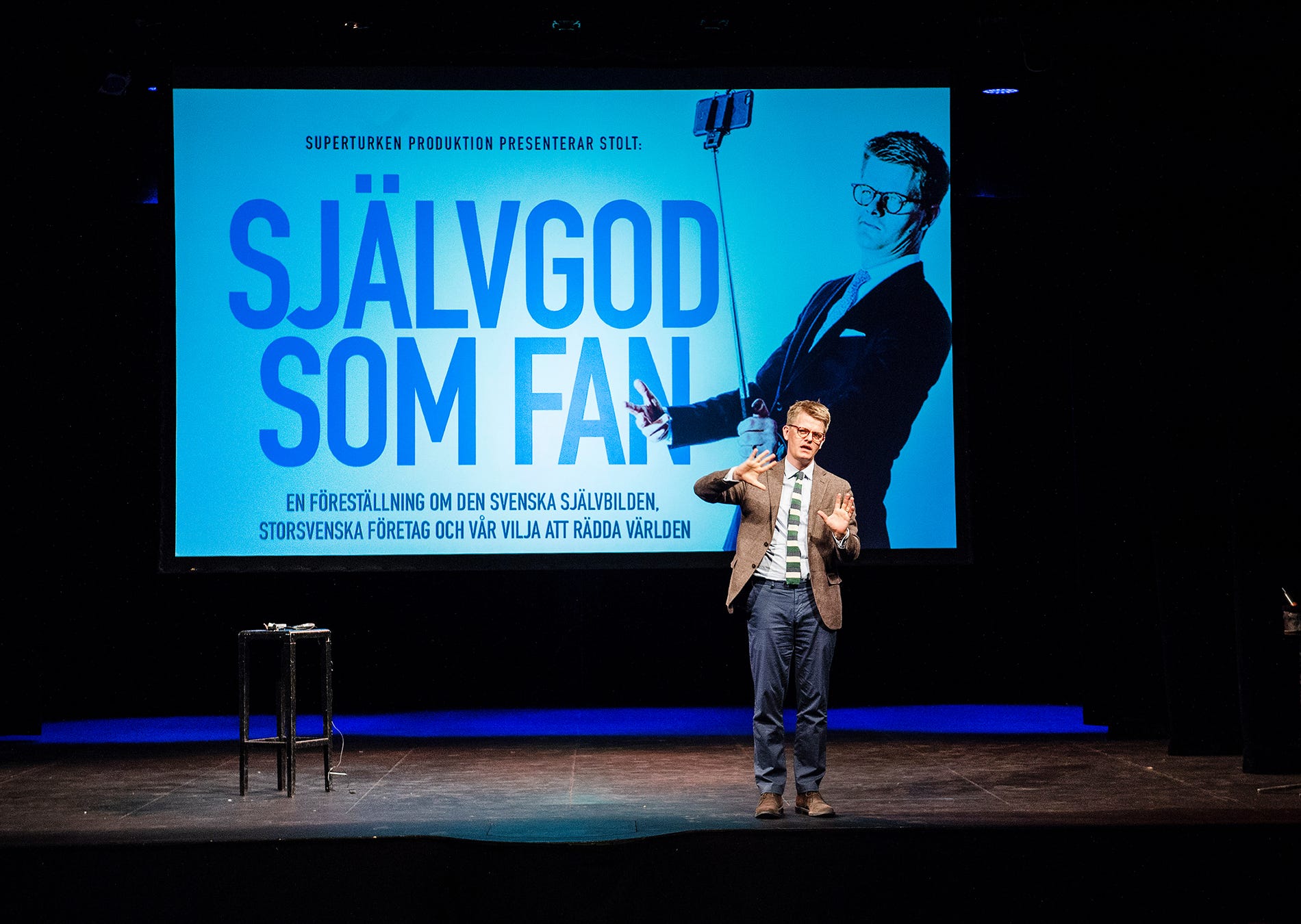Does using humor make it easier to explain things?
If you can make people laugh, you can insert facts while their mouths are open.
Today's newsletter is about how humor can be a tool for making something more understandable and memorable. (To read it in Swedish, click here.)
On stage, I always try to be funny when explaining a topic. The day's mission could be to explain how to find engagement at work or how to combine sustainability with profitability; the topic doesn't matter. My jokes are always thought out in advance and delivered in a specific order, and I know how to build them up or bridge back to something I previously explained for maximum comic effect.
Yet, I would never call myself a comedian. As a lecturer, I use humour to communicate more effectively with the audience and help them remember the subject better. After all, if you can make them laugh, you can put a few facts in their mouths while they are open. But a comedian? No, I'm not.
In the last decade, many comedians have used this insight to convey something they think is important while making people laugh. Audiences bought tickets to have fun but also gained knowledge. The approach became so popular that all stand-up comedians seemed to have something to say for a while, and for that, they were criticized. Was it a performance or a lecture?
When the comedian Alok (no surname) started their act by walking to the edge of the stage to introduce themselves, it was obvious to everyone in the audience that they were unusual. Despite the flowing, knee-length, shimmering silver dress with puffy arms, long eyelashes and colourful makeup, there's no mistaking that they once identified as a man. I can't decide if it's the hairy arms or the beard that gives it away, but something is.
"My name is Alok," they began. "My first name is hihi/haha". It's a successful joke and a reminder of the comedian's promise to the audience. Sitting in the audience, of course, you realize that some of the jokes will surely be based on the trans experience, and some have surely only come for that reason, but with his greeting phrase, Alok signals that we can expect above all the usual: to laugh. They are also at their funniest when they normalize trans people by talking about how they struggle with challenges we can relate to.
"One of the big issues that transgender people have to deal with..." they begin, pausing perfectly, "... are unanswered emails." Another of their hilarious rants is about how body positivism hasn't yet reached the airlines, who insist that bags can weigh 23 kilograms. Alok also tries to argue with someone at check-in that they should also consider how much emotional baggage they have.
By talking about normal things from their unique perspective, Alok normalizes these things more effectively than if they had advocated for transgender rights. As a CIS person, you can never fully identify with the trans perspective, so talking about what makes us different becomes a barrier to normalizing trans people in society. However, the feeling of constantly having unanswered emails is something everyone can relate to, making it easier to accept Alok's perspective as perfectly usual.
Alok delivers these jokes as part of Hannah Gadsby's 'Gender Agenda', a stand-up special on Netflix that is well worth watching. Gadsby had her global breakthrough on the platform with 'Nanette', followed it up with 'Douglas' and is currently on her third show 'Something Special'. They are standalone, but I still recommend seeing them in order, as it's a chance to see a phenomenal talent refine his craft with each performance.
I deliberately use the word "refine", not improve. What becomes clear over time is how incredibly skilled Gadsby was right from the start. I have not seen anyone who masters the architecture of comedy quite the same way as she does, who can build up jokes and make arcs. This is particularly evident in "Douglas", which begins with her telling us for ten minutes exactly how the show will go, where the jokes will land and how we will act. It sounds autistic, and she is, but it's fantastic.
Stand-up comedy was born out of observational humour. It was performed by white men in basement bars in American cities who plucked up the courage, approached the microphone, and opened with a rhetorical question, ‘Have you noticed that girls always...’ a tradition embodied more than any other by Jerry Seinfeld and aimed at making themselves relatable. (Ellen de Gene's "Relatable" pokes fun at this relatability in a wonderful way.) They said things as if they were an observation that they were sharing with you personally, and it felt a little like they had to come up with this thing at the moment, right before they got on stage.
When men representing minorities or women grabbed the microphones, they realized they could score cheap points by making fun of themselves. People considered outside have always done this to please those considered inside. For those who represent the norm or authority, it also reduces the distance between themselves and the audience.
When I lecture on how to turn sustainability into a profitability issue, I talk about how second-hand is an easy way to get quality (otherwise, it wouldn't have lasted even to be second-hand) and then have a joke about my jacket being bought second-hand. "As you can see, it's some other old guy who had this jacket before me, and the downside is, of course, that it smells a little pungent. On the other hand, I'm at that age when I start to smell pungent, so it doesn't matter to me." It always brings a lot of laughter, but the long-term effect is even greater. People associate second-hand clothes with quality. The humour makes the explanation more memorable.
"Nanette" is a dark story, very dark at times. Shortly into the show, Hannah Gadsby declares that she has realized that she must stop being a comedian because she is no longer willing to extract humour from the traumas she has experienced. For every laugh we get, she punches herself. In theory, of course, it's a hopeless premise for a comic performance, but Gadsby manages it with her talent. When she finally falls silent, we wish her nothing more than never to have to score points at her own expense while hoping that she will do another show soon.
Critics remarked that the whole thing was more like a lecture than a performance. Gadsby tells this cheerfully in "Douglas", briefly notes that they were wrong and then remarks that "I'll show them what a lecture should look like" and then delivers a tremendously good one (of course) regarding the debate about when the High Renaissance began.
Hannah Gadsby and Alok stay on their side of the line between performance and lecture. In her show "Get down on your knees", Jacqueline Novak manages to be on both sides simultaneously. It's a ninety-minute reflection on blow jobs, "a standup performance, a coming-of-age story, and a philosophy lecture," as the New Yorker summed it up. I can't praise it enough and have recommended it to everyone I've felt comfortable enough to recommend it to, saying, "It's a ninety-minute show about blow jobs. Very worth seeing!"
For anyone who thinks they can do what Novak does and mix humour and lecture, the New Yorker article is a sobering reminder of how much work she put into her show. It also provides insight into her and her director's choices to find the balance between performance and lecture. Novak, however, sees herself as a comedian first and foremost - and rightly so.
A few years ago, I did a show at Södra Teatern in Stockholm called "Smug as hell" where I explored the Swedish self-image and how it affected companies' views on sustainability for 90 minutes. It was marketed as "a performance" only because people don't want to pay for knowledge but are willing to do it for fun. Nevertheless, it was a lecture, albeit a rather funny one, if I interpreted the audience's reactions correctly.
If you want to use humour when explaining something, I advise you to write down the jokes and practice, practice! They say you need an hour of practice for every minute you plan to be on stage to feel relaxed, and if you're going to speak without a script and a prop, you'll need twice that. So, my 70-minute performance required 140 hours of practice.
Finally, let the jokes be about things the audience can relate to or unexpected perspectives on known phenomena. Don't make jokes about something that might be misunderstood, like blowjobs or trauma, unless you are as skilled as Hannah Gadsby or Jaqueline Novak. Also, avoid joking about how bad you are or that you should have done things differently - it only diminishes yourself. And it's rarely very funny.
A few examples:
Learning something while laughing is wonderful. Here are some shows I can highly recommend besides the ones I mentioned above: where Hannah Gadsby's three shows and Jaqueline Novak’s.
Alex Edelman: "Just for us" How does the far right think? After receiving a lot of anti-Semitic threats, Edelman goes to Queens, where he secretly attends a meeting with white nationalists. (Watch it on Max)
John Leguizamo: "Latin history for morons": What do you really know about Latin American history? Leguizamo finds tragedy and humour in 3,000 years of Latin American history, which he studied to help his bullied son. (Watch it on Netflix)
Tig Notaro: "Tig." How do you tell someone you have cancer? Notaro did a classic show about it. (See it on Netflix.) For those who prefer a lighter subject, I recommend her latest show, "Hello Again," with classic observational humour. (Available on Prime Video.)
Until next time,
Per




